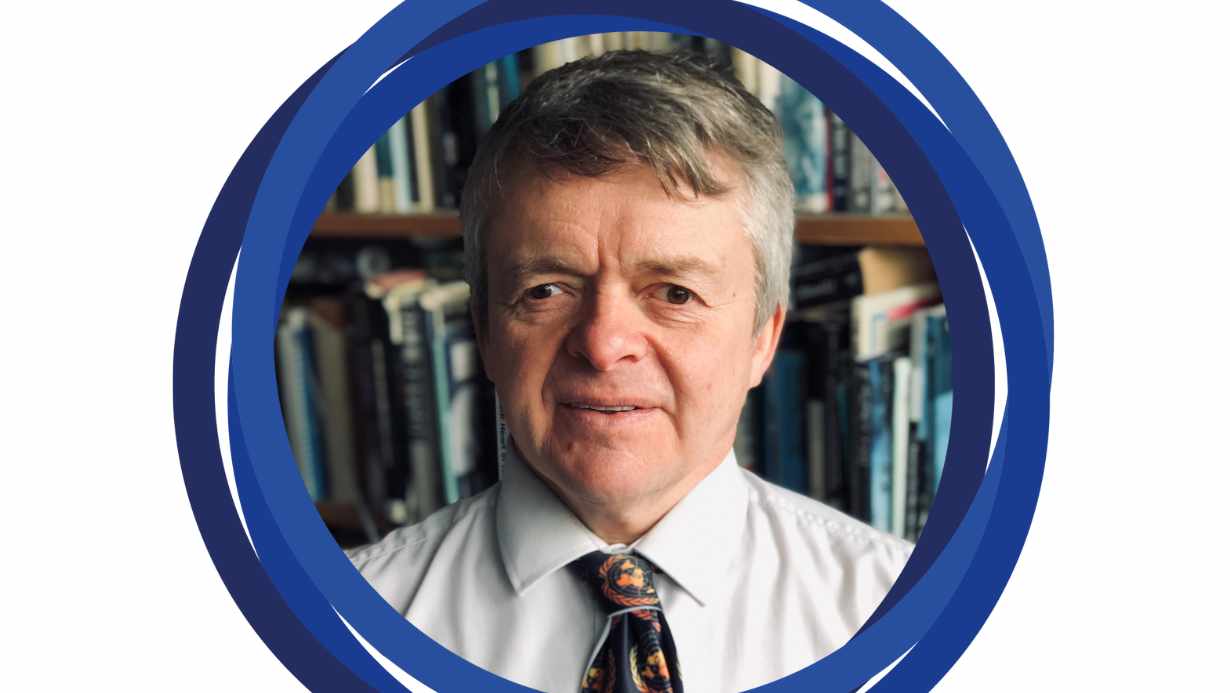Andrew lost his sight when he was 12 years old. His optic nerves were damaged so while his eyes still pick up signals, they do not send them to the brain.
“When I look back now, I’m amazed that I adjusted. When you’re a child, you just accept more willingly what’s thrown at you because you don’t know anything different. You don’t have the habit of your eyesight as opposed to losing your eyesight in your 50s.”
Andrew is currently a history and politics teacher at St. Clare’s, Oxford. He described that his visual impairment impacts him most in terms of accessing materials. “Technology is a mixed blessing. On one hand, it has made our lives easier. For example, I could have things read to me on a computer screen which couldn’t be done on a typewriter. But on the other hand, more and more materials are only available through visual means. If you go to an unmanned London underground station, there’s no one there to help. There’s just a screen and it has no audio prompt.”
As a teacher, being able to access material and read it is a central aspect of Andrew’s job. Advances in technology such as screen readers have made certain aspects of his work much easier. “If a student types up an essay and sends it electronically, that’s no problem,” said Andrew. The biggest challenge, however, is correcting handwritten exams. “[They] are handwritten under time pressure so I get pages and pages of illegible script and I need to decipher them. That’s where I need human help.”
Andrew first contacted MyVision for this exact reason. When he started working at St. Clare’s in 1987, he was looking for a reader to help him with his work. He heard about MyVision (called OAB at the time) and we supplied him with a volunteer reader to help him with teaching and grading. Andrew then found out about our other services. He borrowed our braille machine when his broke, and we helped him order more paper for his braille machine. “I received help with very practical things; they were small things that made a big difference,” he said.
Andrew said that he feels confident getting around and navigating his visual impairment. He uses a white cane, and he isn’t afraid asking people for help. “I’m not afraid to be ignored, belittled, or rejected, but I have to say that my experience of the public has gotten better and better as the years have gone on. I think there’s just much more awareness of visual impairment.”
“I’ve come to realise that what I took in the past to be a lack of sympathy was actually the opposite. People didn’t want to be seen as patronising. They would think that if they offered help it would be seen as belittling, so I have now tried to see things from their point of view.”
Andrew wants to encourage people who try to help, and aften accepts help even when he does not need it. “I would rather be over-helped than under-helped,” he said. When he was a teenager, he wanted to assert his independence so he would often say ‘no’ to help, even when he needed it. Now he does the opposite. Andrew feels that if he rejects people who try to help him, they could be discouraged and would be less likely to offer their help again to others. “Bizarrely, often it’s not them doing it for me but me doing it for them.”
Despite the increased level of awareness and people’s willingness to help, Andrew feels like there is room for improvement in the ways that people act towards visual impairment. “It would be great if people could just imagine or empathise with it a little bit more.”
“I’ll get on a bus when travelling home and someone will tell me, ‘there’s a seat over there mate.’ Well, ‘where is over there?’ They thought about helping, which is great, but they haven’t thought it through. If people just shut their eyes for a minute, I think they would realise the small things they take for granted that they would suddenly find to be difficult.


